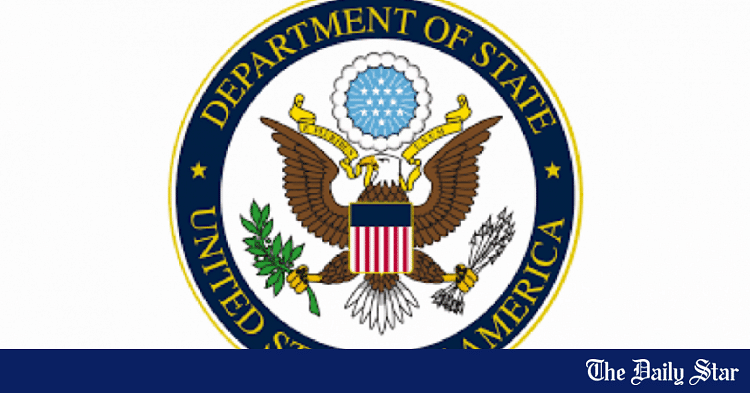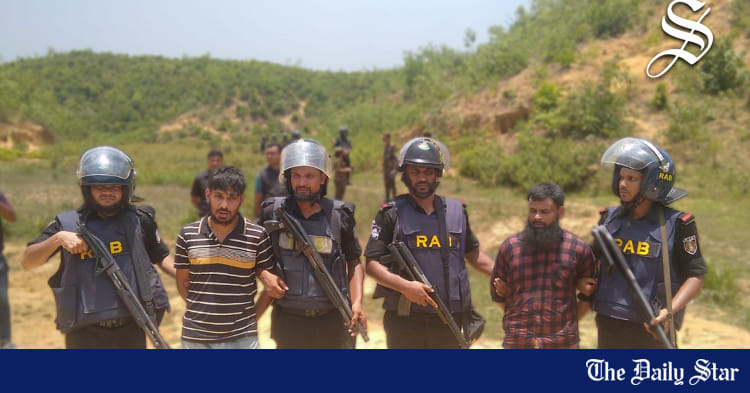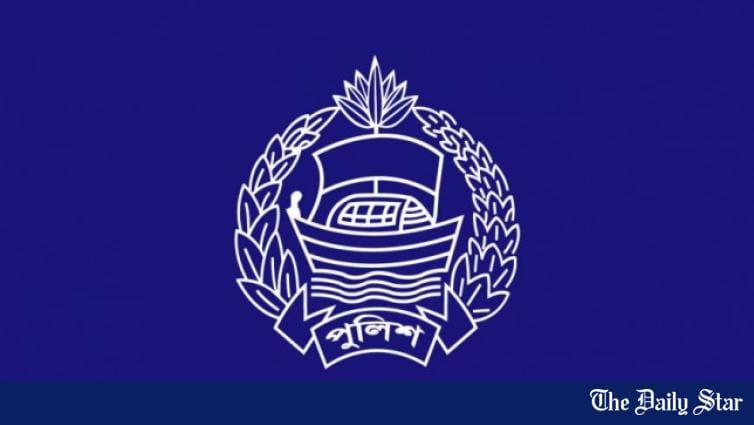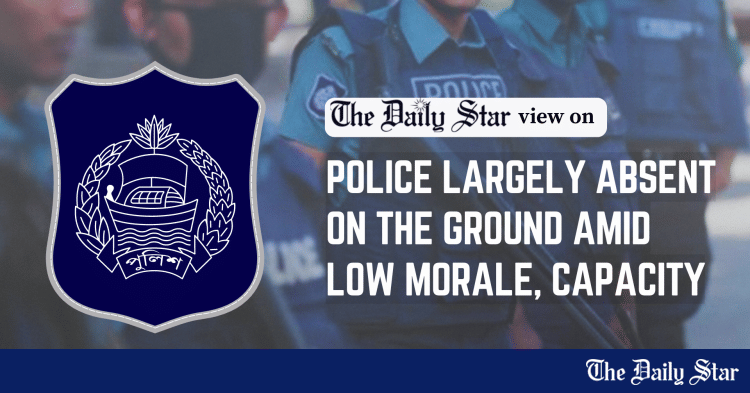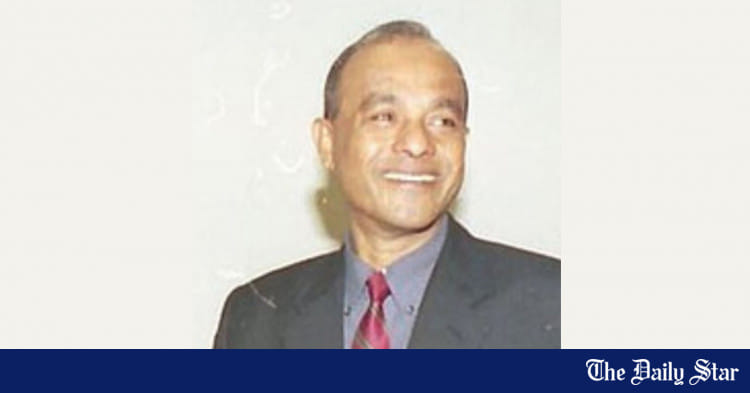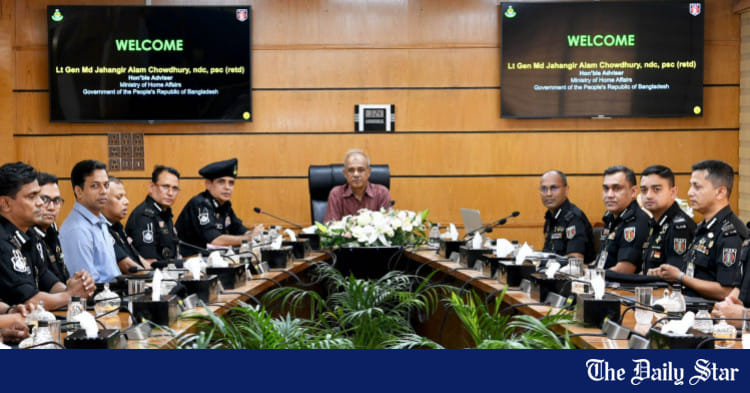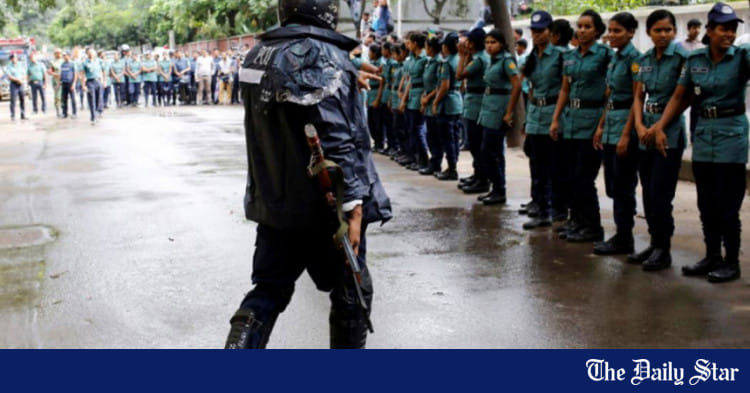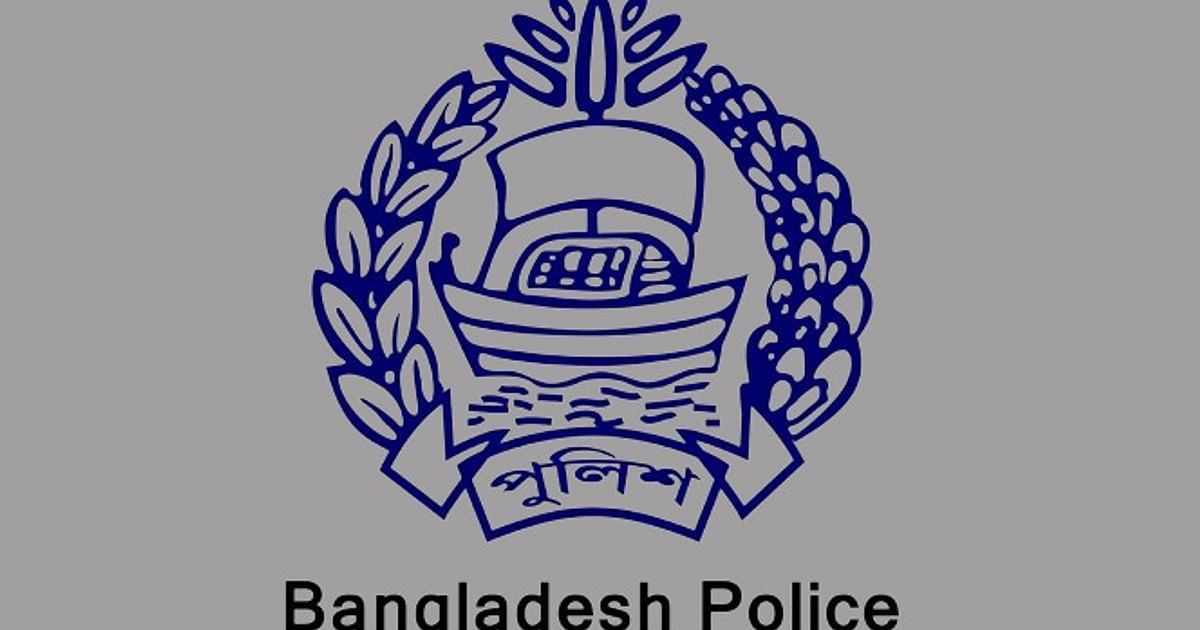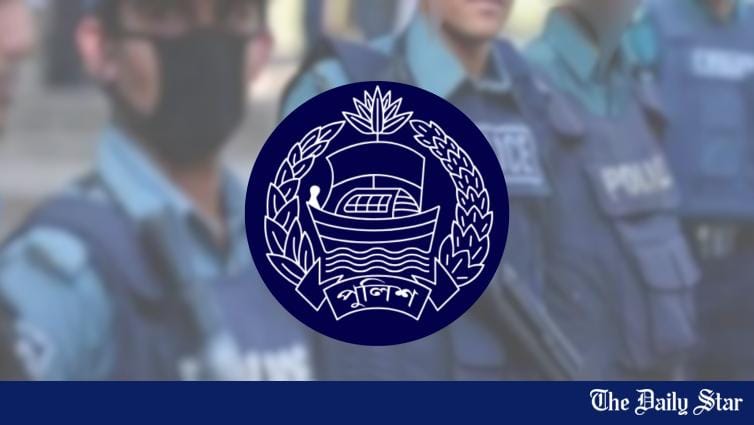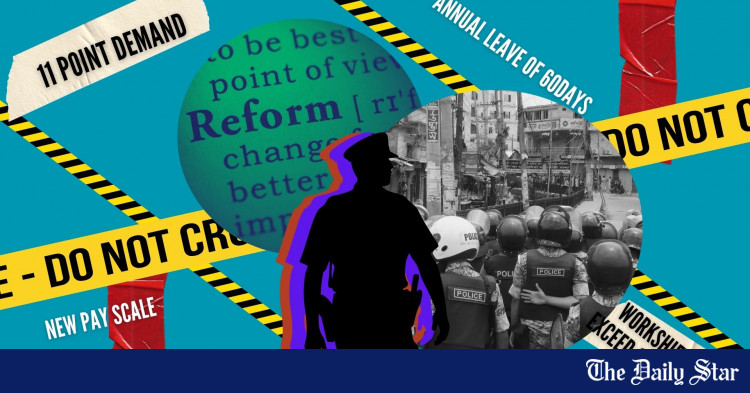Saif
Senior Member
- 13,793
- 7,411
- Origin

- Axis Group

Source
:
https://www.thedailystar.net/news/bangladesh/diplomacy/news/us-lifting-rab-sanctions-3610341
'US for lifting Rab sanctions'
Salman F Rahman says after meeting Donald Lu

US Assistant Secretary Donald Lu. Photo: Reuters
US Assistant Secretary of State for South and Central Asia Donald Lu yesterday told the government they will support the withdrawal of sanctions against Rapid Action Battalion, Prime Minister's Private Industry and Investment Adviser Salman F Rahman said.
The US also asked Bangladesh to ensure timely payments to American companies conducting business here.
Rahman was briefing journalists after a meeting with Donald Lu at his Gulshan residence last night.
However, neither Lu nor the US embassy in Dhaka spoke publicly about the meeting.
Lu has been in the region since May 10, visiting India and Sri Lanka, and arrived in Dhaka yesterday morning.
Rahman claimed the US side told him that the White House is also for the withdrawal of sanctions, but they have a procedure that needs to be followed. Sanctions are within the jurisdiction of the US Department of Justice.
The US last year announced a visa policy for Bangladesh, saying those undermining democratic elections would be denied visas. Earlier in 2021, it imposed sanctions on Rab and some of its officials.
Rahman also said that US wants to rebuild trust in its relationship with Bangladesh.
"We both agreed that our relationship should be better than what it was prior to the elections. There might have been misunderstandings earlier."
Rahman said there were some reservations in the run-up to the elections, and even afterwards, but when US President Joe Biden wrote to the PM, it was understood that they have accepted the elections.
Biden wrote to the PM in February iterating their willingness to help Bangladesh achieve its economic goals.
Rahman said they did not talk about visa restrictions last night but "there are no visa restrictions now".
Concerning delayed payments to American companies, he quoted Lu as saying that the US understands there is considerable pressure on Bangladesh's central reserves.
"We said we are hopeful that our export and remittance will increase since we have devalued the taka recently. We pointed out that although payments are being delayed, we haven't halted them," he added.
Bangladesh also sought funding under the US International Development Finance Corporation (DFC).
"They said Bangladesh needs to reform the labour sector as per the suggestions of the International Labour Organisation. We said we have amended the labour law and are continuing reforms. We hope to come to an understanding with ILO. Once done, we can get get DFC funding."
Bangladesh requested the US to put pressure on Myanmar for repatriation, said Rahman, adding that the US agreed to do so while also pointing out that since the situation in Myanmar is not safe, repatriation will take time.
The two also spoke about regional power connectivity between Bangladesh, Nepal and Bhutan, and the crisis in Gaza.
Dhaka's priority will be trade and economy, while Washington's will be security, especially advancing partnership under its Indo-Pacific Strategy, as Donald Lu holds meetings with the government high-ups today.
According to diplomatic sources and analysts, Washington is focused on strengthening its relations with the Indo-Pacific nations keeping China in mind, though it says it does not target any specific country.
Lu met with civil society members to discusse human rights, labour rights, environment, gender, and media freedom.
Today, he will hold a meeting with Foreign Secretary Masud Bin Momen and call on Foreign Minister Hasan Mahmud and Environment, Forest, and Climate Change Minister Saber Hossain Chowdhury.
"His trip will strengthen bilateral cooperation with each country and demonstrate US support for a free, open, and prosperous Indo-Pacific region," according to a statement issued by the US State Department ahead of Lu's visit to India, Sri Lanka, and Bangladesh.
At a recent briefing in Dhaka, Maxwell Martin, political officer at the US embassy in Dhaka, said Washington wants to see Bangladesh as a net security provider, meaning that the country can support regional countries in terms of security as the country has the capacity.
"We would hope that Bangladesh sees the Indo-Pacific Strategy as an opportunity to cooperate with us and our partners to help address some of Bangladesh's security concerns," he said.
Washington's push for democracy, human rights, and good governance is also part of the US-led strategy, Martin said, referring to last year's US public statements on free and fair elections.
Nilanthi Samaranayake, a visiting expert at the US Institute of Peace and adjunct fellow at the East-West Center in Washington, in an article on April 30 said while the US raised the temperature on Bangladesh regarding the conduct of its election process before January, it appears to now be focused on the way forward in the relationship.
"As a result, a discussion about Dhaka signing the ACSA and the GSOMIA is worth reengaging on, ahead of annual partner dialogues between the two countries," she wrote.
Prof Obaidul Haque, of Dhaka University's international relations department, said Lu may press for signing the two agreements -- Acquisition and Cross-Servicing Agreement on logistics and the General Security of Military Information Agreement -- to advance security and defense relationship.
"I don't think that Dhaka will sign the agreements now. It has a certain level of reluctance about it," he told The Daily Star yesterday.
In an email interview, Samaranayake said Dhaka is likely taking its time to study the specifics of the agreements and understand its options.
"The US agreements are bilateral and do not prevent Bangladesh from having partnerships with other countries such as China. Bangladesh's foreign policy approach is seen as open to multiple partnerships."
Besides, as a climate vulnerable country, Bangladesh needs huge funding from the developed countries. Bangladesh's annual funding requirement is of $9 billion for climate change initiatives, but the government allocates only $3 billion, resulting in a shortfall of $6 billion.
"We need funding as well as technologies. We would seek greater US contribution towards this. Also, the US has been the largest donor for Rohingyas, and we would seek their support for them," said a government official.
Bangladesh would also seek investments from the US, the single largest export market for Bangladesh.
Former ambassador M Humayun Kabir said Washington has great economic interests in Bangladesh, including in the oil and gas sectors.
US oil-gas company ExxonMobil has expressed interest in exploring oil and gas reserves in Bangladesh's offshore blocks.
"We need to decide everything from the view of our national interest," said Humayun.
Salman F Rahman says after meeting Donald Lu
US Assistant Secretary Donald Lu. Photo: Reuters
US Assistant Secretary of State for South and Central Asia Donald Lu yesterday told the government they will support the withdrawal of sanctions against Rapid Action Battalion, Prime Minister's Private Industry and Investment Adviser Salman F Rahman said.
The US also asked Bangladesh to ensure timely payments to American companies conducting business here.
Rahman was briefing journalists after a meeting with Donald Lu at his Gulshan residence last night.
However, neither Lu nor the US embassy in Dhaka spoke publicly about the meeting.
Lu has been in the region since May 10, visiting India and Sri Lanka, and arrived in Dhaka yesterday morning.
Rahman claimed the US side told him that the White House is also for the withdrawal of sanctions, but they have a procedure that needs to be followed. Sanctions are within the jurisdiction of the US Department of Justice.
The US last year announced a visa policy for Bangladesh, saying those undermining democratic elections would be denied visas. Earlier in 2021, it imposed sanctions on Rab and some of its officials.
Rahman also said that US wants to rebuild trust in its relationship with Bangladesh.
"We both agreed that our relationship should be better than what it was prior to the elections. There might have been misunderstandings earlier."
Rahman said there were some reservations in the run-up to the elections, and even afterwards, but when US President Joe Biden wrote to the PM, it was understood that they have accepted the elections.
Biden wrote to the PM in February iterating their willingness to help Bangladesh achieve its economic goals.
Rahman said they did not talk about visa restrictions last night but "there are no visa restrictions now".
Concerning delayed payments to American companies, he quoted Lu as saying that the US understands there is considerable pressure on Bangladesh's central reserves.
"We said we are hopeful that our export and remittance will increase since we have devalued the taka recently. We pointed out that although payments are being delayed, we haven't halted them," he added.
Bangladesh also sought funding under the US International Development Finance Corporation (DFC).
"They said Bangladesh needs to reform the labour sector as per the suggestions of the International Labour Organisation. We said we have amended the labour law and are continuing reforms. We hope to come to an understanding with ILO. Once done, we can get get DFC funding."
Bangladesh requested the US to put pressure on Myanmar for repatriation, said Rahman, adding that the US agreed to do so while also pointing out that since the situation in Myanmar is not safe, repatriation will take time.
The two also spoke about regional power connectivity between Bangladesh, Nepal and Bhutan, and the crisis in Gaza.
Dhaka's priority will be trade and economy, while Washington's will be security, especially advancing partnership under its Indo-Pacific Strategy, as Donald Lu holds meetings with the government high-ups today.
According to diplomatic sources and analysts, Washington is focused on strengthening its relations with the Indo-Pacific nations keeping China in mind, though it says it does not target any specific country.
Lu met with civil society members to discusse human rights, labour rights, environment, gender, and media freedom.
Today, he will hold a meeting with Foreign Secretary Masud Bin Momen and call on Foreign Minister Hasan Mahmud and Environment, Forest, and Climate Change Minister Saber Hossain Chowdhury.
"His trip will strengthen bilateral cooperation with each country and demonstrate US support for a free, open, and prosperous Indo-Pacific region," according to a statement issued by the US State Department ahead of Lu's visit to India, Sri Lanka, and Bangladesh.
At a recent briefing in Dhaka, Maxwell Martin, political officer at the US embassy in Dhaka, said Washington wants to see Bangladesh as a net security provider, meaning that the country can support regional countries in terms of security as the country has the capacity.
"We would hope that Bangladesh sees the Indo-Pacific Strategy as an opportunity to cooperate with us and our partners to help address some of Bangladesh's security concerns," he said.
Washington's push for democracy, human rights, and good governance is also part of the US-led strategy, Martin said, referring to last year's US public statements on free and fair elections.
Nilanthi Samaranayake, a visiting expert at the US Institute of Peace and adjunct fellow at the East-West Center in Washington, in an article on April 30 said while the US raised the temperature on Bangladesh regarding the conduct of its election process before January, it appears to now be focused on the way forward in the relationship.
"As a result, a discussion about Dhaka signing the ACSA and the GSOMIA is worth reengaging on, ahead of annual partner dialogues between the two countries," she wrote.
Prof Obaidul Haque, of Dhaka University's international relations department, said Lu may press for signing the two agreements -- Acquisition and Cross-Servicing Agreement on logistics and the General Security of Military Information Agreement -- to advance security and defense relationship.
"I don't think that Dhaka will sign the agreements now. It has a certain level of reluctance about it," he told The Daily Star yesterday.
In an email interview, Samaranayake said Dhaka is likely taking its time to study the specifics of the agreements and understand its options.
"The US agreements are bilateral and do not prevent Bangladesh from having partnerships with other countries such as China. Bangladesh's foreign policy approach is seen as open to multiple partnerships."
Besides, as a climate vulnerable country, Bangladesh needs huge funding from the developed countries. Bangladesh's annual funding requirement is of $9 billion for climate change initiatives, but the government allocates only $3 billion, resulting in a shortfall of $6 billion.
"We need funding as well as technologies. We would seek greater US contribution towards this. Also, the US has been the largest donor for Rohingyas, and we would seek their support for them," said a government official.
Bangladesh would also seek investments from the US, the single largest export market for Bangladesh.
Former ambassador M Humayun Kabir said Washington has great economic interests in Bangladesh, including in the oil and gas sectors.
US oil-gas company ExxonMobil has expressed interest in exploring oil and gas reserves in Bangladesh's offshore blocks.
"We need to decide everything from the view of our national interest," said Humayun.

